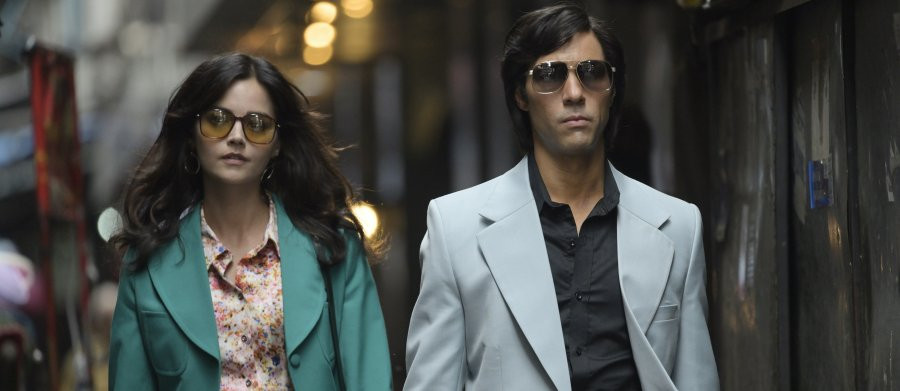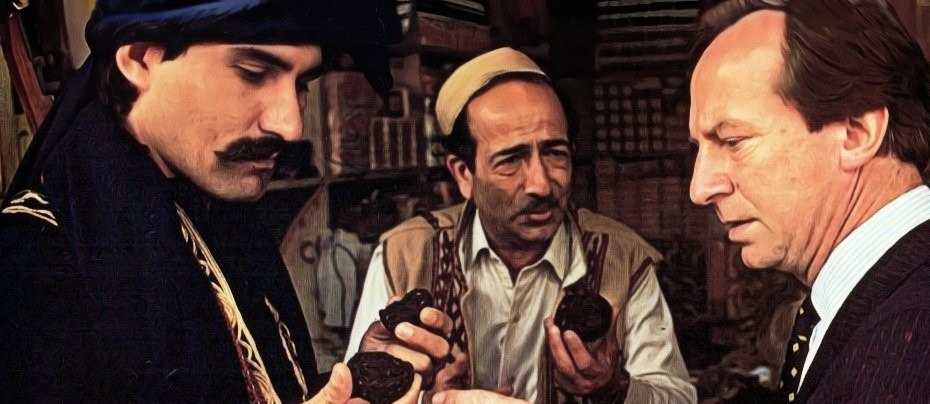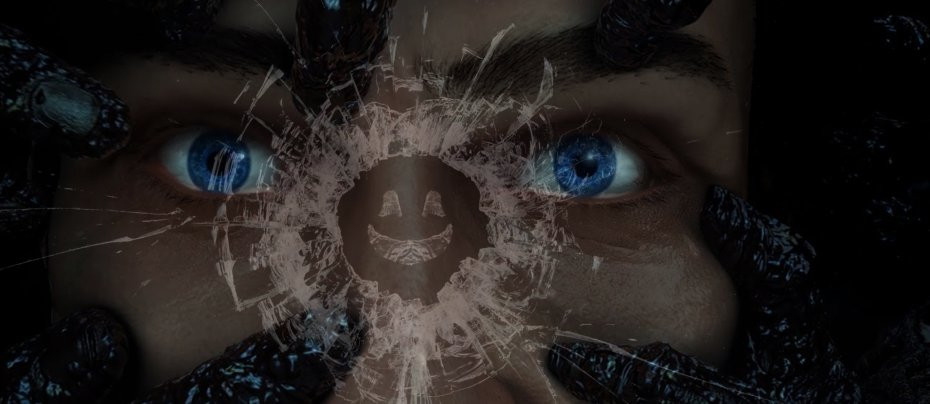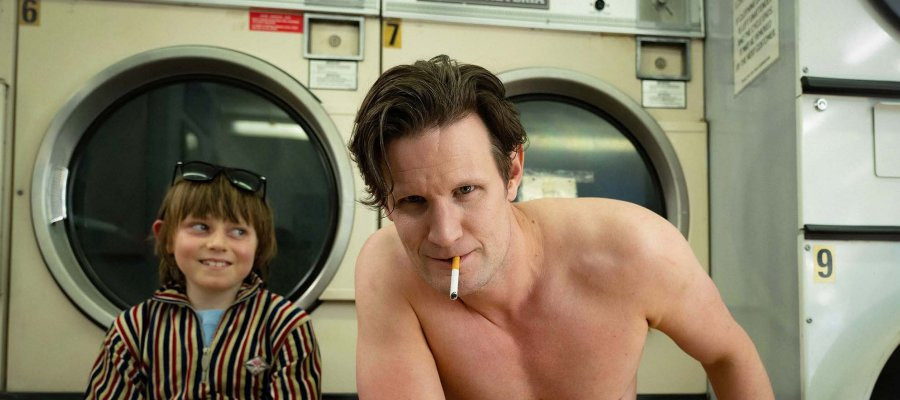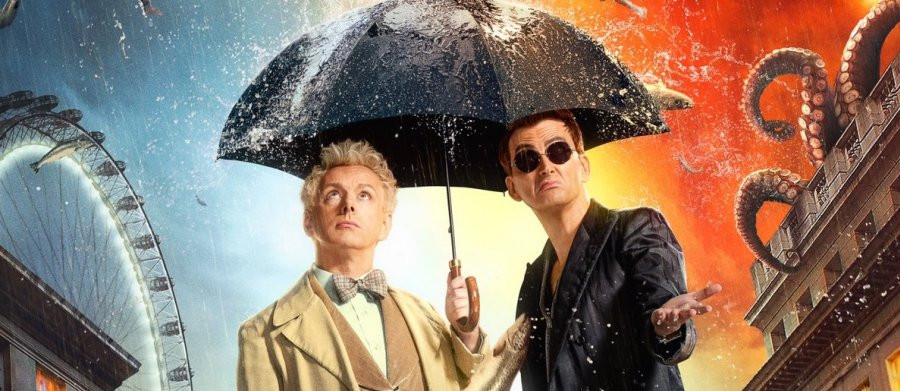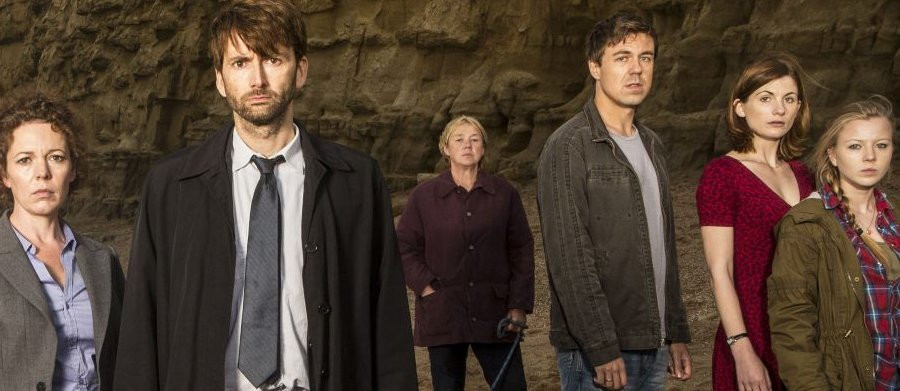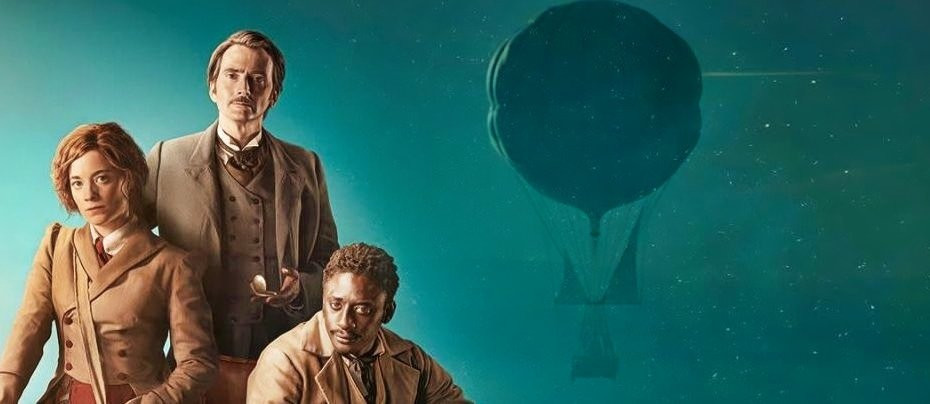
Around the World in 80 Days
2021 - Germany France Italy Usa BelgiumA roaring adventure that reimagines Verne's classic work into a modernised story that is still in keeping with the spirit of the source material
Around the World in 80 Days (2021) reviewed by Daniel Tessier
Around the World in Eighty Days is one of Jules Verne's most well-known and beloved novels. One of his vast sequence of works known as the Voyages extraordinaires, since its publication in 1872 has been adapted for both the big and small screens again and again.
So for Christmas 2021 a new version was filmed, by an appropriately international alliance of broadcasters including France Televisions, Germany's ZDF, Radiotelevisione Italiana, Be-Films of the Belgian group RTBF and America's PBS under its Masterpiece umbrella. Perhaps the most truly global production of the book yet, filming took place in the United Kingdom, France, Romania and South Africa.
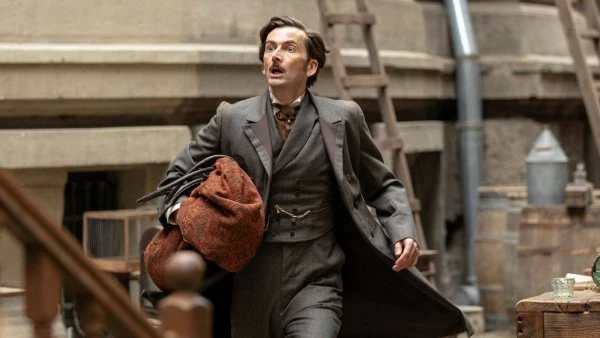
To a British audience, who first got to see the production on Boxing Day 2021, the eight-part extravaganza looks as British as it comes. It stars, after all, Scottish actor David Tennant, forever recognisable as the 21st century's quintessential Doctor Who, utilising his perfected received pronunciation as wealthy English eccentric Phileas Fogg. Beginning in London, Fogg traverses the globe, sticking mainly to the widespread locales of the British Empire. Its chief writer is Ashley Pharoah, best known as the co-creator of Life on Mars, Ashes to Ashes and Wild at Heart. Surely, it couldn't be more British?
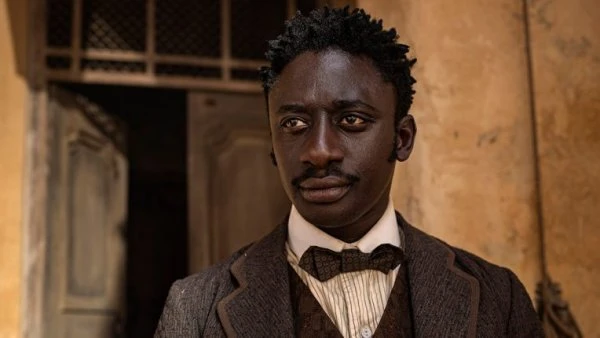
The story is so familiar to English-speaking audiences that they tend to forget that Jules Verne was French, and that all English versions of his books are translations (of varying faithfulness). This is, of course, reflected in the character of Jean Passepartout, Fogg's French valet, who spends the novel making judgments on the odd manners of the English. In this adaptation, the faithful Passepartout is portrayed by Ibrahim Koma (Wulu, As Far as I Can Walk, Sous le soleil), a Malian-French actor. The charismatic Koma is not the first actor of colour to play Passepartout or an inspired stand-in character, but the choice of a Black actor does allow for new and powerfully relevant stories.
Of course, there is still a great deal of Britishness, even Englishness to the character of Fogg, even though the character was inspired by the American raconteur and adventurer William Perry Fogg. To be fair, in the novel Fogg frankly lacks character, his eccentricity marked by his mathematical precision and punctuality and little else. Tennant's version is more interesting. He is still an extremely wealthy member of London's storied Reform Club, accepting a wager of £20,000 to prove he can circumnavigate the globe in only eighty days. Dreadfully proper, Fogg's outwardly reserved demeanour hides an adventurer's soul which was quashed by lost love. It's an altogether more humanised, and more watchable, version of the character than the book's original.
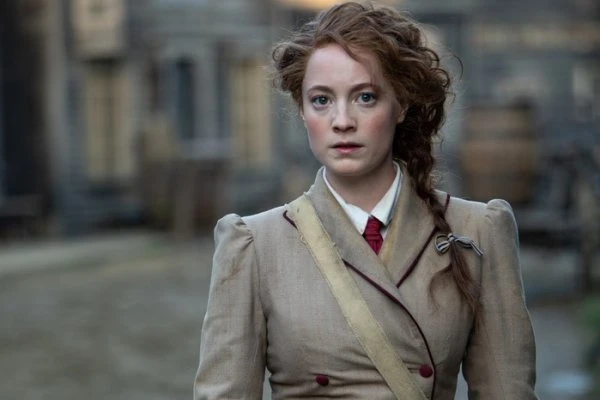
The new adaptation lacks one of the novel's principle characters, the misguided Detective Fix, and reduces the role of the Indian princess Aouda. They are instead replaced by, and combined to an extent, a new character, Miss Abigail Fortescue, an aspiring journalist who goes by the pen name of Abigail Fix. Played by the German actress Leonie Benesch (The Crown, The White Ribbon), Miss Fix is a forward-thinking and courageous English adventurer who has little time for any of Fogg's more old-fashioned ways. Fix's motive is to prove she can complete the trip with Fogg whilst documenting it for the newspaper run by her father (Jason Watkins – Being Human, The Crown) , and undercover the truth that motivates the traveller.
The person Miss Fix most resembles is Elizabeth Cochran, better known by her pen name Nellie Bly, who was inspired by Verne's novel to travel around the world and to prove it was possible to do it within the eighty days' limit. Fifteen years after the novel's English publication, Bly made the trip in record time, publishing her story as Around the World in Seventy-Two Days. Fix could also be based on Bly's self-appointed rival, Elizabeth Bisland, who was sponsored by Cosmopolitan to race her around the world in the opposite direction. She completed it in seventy-six days, beating Fogg but losing to Bly. And they both managed it without a valet.
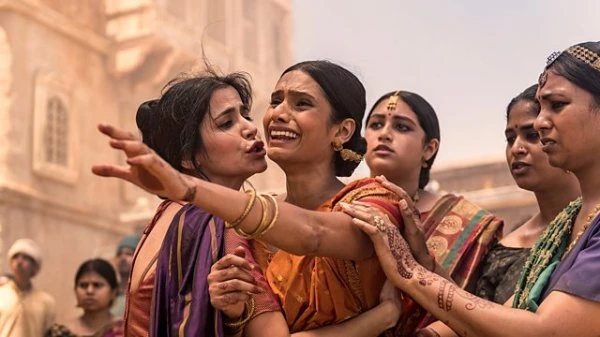
The three leads have an excellent chemistry, not least between Koma and Benesch, which carries across to their characters' cautious romance. Aouda does appear, played by Anglo-Indian actress Shivaani Ghai (Batwoman, Dominion, Strike Back: Revolution), in part four, but her story is significantly altered. Fogg no longer rescues her from imminent death, but instead acts in the defence of her lover (Rizelle Januk) who has deserted his post in the British Indian Army in order to marry her. Aouda remains in India, rather than joining Fogg on his travels and becoming his love interest.
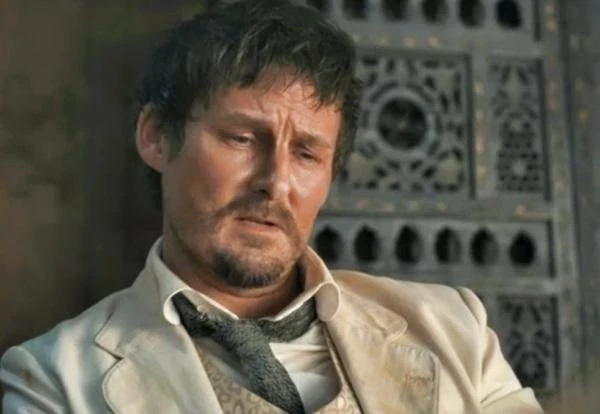
Some of Detective Fix's role in the plot is filled by Thomas Kneedling (Anthony Flanagan – Shameless, Heroes and Villains). While the literary Fix was an obsessive and misguided character, he was ultimately a decent man. Kneedling, on the other hand, is a dirty copper who will stoop to any means to stop Fogg, at the behest of his employer, Bellamy. Played by Peter Sullivan (The Hour, Poldark, Cuffs), Bellamy is a dishonourable, untrustworthy “gentleman,” who stands to be bankrupted should his rival Fogg win their wager.
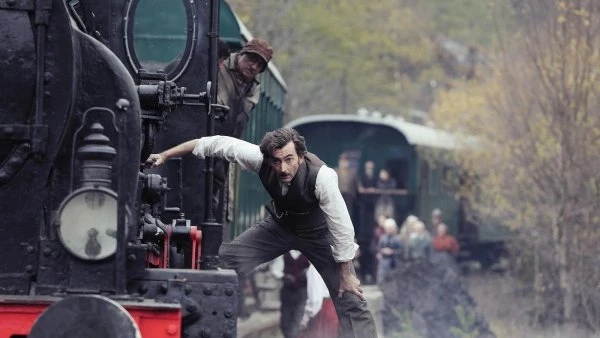
While Fogg's journey roughly matches with the one he takes in the novel, the adventures he experiences are frequently changed. A situation with a collapsed suspension bridge is moved from late in the novel to the second episode, and Fogg is given a more active role in solving the crisis, marking him out as a heroic character from the get-go. Other events are entirely new, invented for this adaptation. This is no bad thing, making the serial a truly gripping story that rarely settles down. There's a stranding on a desert island, a false arrest in Hong Kong and a Wild West encounter.
Verne's original novel was fairly progressive for its time, but inevitably, elements of it have aged poorly. Verne was a European from the time of empire, and his views of other nationalities and ethnicities reflected this. The new production rectifies any such problems by embracing not just diversity but also topical issues that are as prevalent now as they were in the 19th century. Passepartout's race singles him out for poor treatment when the travellers arrive in the United States, with Fogg joining a group to stand against the Ku Klux Klan – something that has become frighteningly relevant again after recent developments in the States. The romance between Passepartout and Fix becomes an issue on their voyage back to Britain.
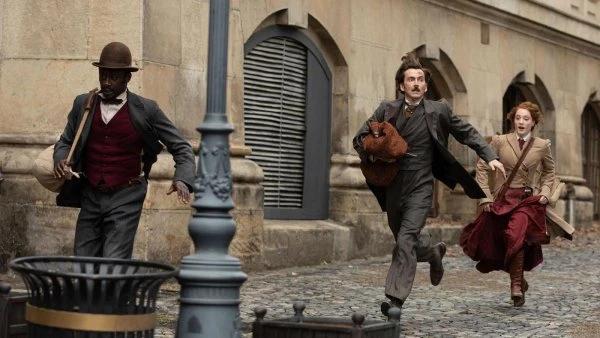
Other elements are more notable as products of their time. The opening episode features frightening unrest in France by rebels against President Thiers, reflecting the turmoil that Verne had witnessed in his own country. Other elements are cut from the book in spite of their social commentary. The rescue of Aouda, who was to be a victim of sati, the sacrifice of a widow on her husband's funeral pyre, may appear shocking and potentially racially stereotyped to a modern audience, but it was a serious problem in India at the time and has still not been entirely stamped out.
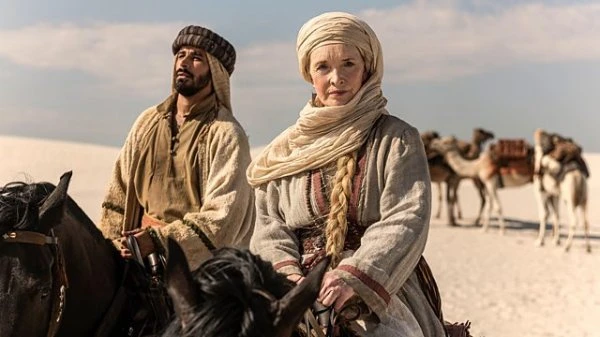
There are some excellent guest stars in the story as well, playing notable historical personages. Lindsay Duncan (Rome, GBH, Sherlock) reunites with Tennant over a decade since they appeared together on Doctor Who to play Jane Digby, the English aristocrat who shocked her peers for her many affairs and adventures. Gary Beadle (Operation Good Guys, EastEnders) appears as Bass Reeves, the first Black deputy US Marshal in former Confederate territory. There are also guest spots for stars such as Victoria Smurfit (Ballykissangel, Once Upon a Time), Dolly Wells (Dracula, The Outlaws, Doll & Em) and Jeff Rawle (Drop the Dead Donkey, Hollyoaks, Spooks) among others.
The lack of Detective Fix alters the ending of the story somewhat, but Fogg is still arrested when he arrives in England due a warrant still mistakenly being active after his tussle with the law in Hong Kong. As in the novel, the travellers believe that they are a day late due to this delay, having not accounted for the shift in dates by travelling easterly around the world (the International Date Line not being put in place till some years later). What follows is a ludicrously tense race-against-the-clock which, naturally, sees Fogg reach the finish line at the Reform Club at the very last second.
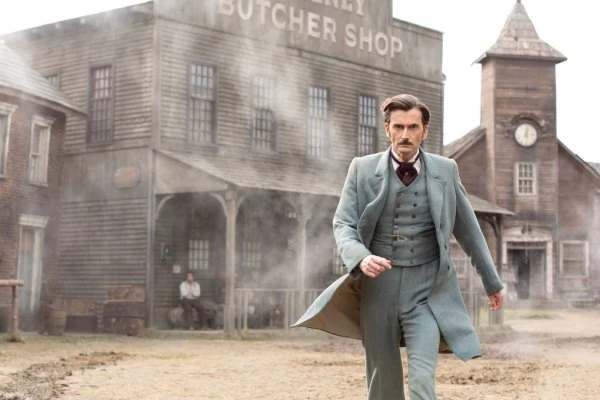
Around the World in 80 Days is a roaring adventure that reimagines Verne's classic work into a modernised story that is still in keeping with the spirit of the source material, if not the letter. As cinematic as television gets, with astonishingly beautiful location work, it boasts a score by maestro Hans Zimmer (Gladiator, Pirates of the Caribbean, Inception) and excellent direction by Steve Barron (The Storyteller, Arabian Nights) and Charles Beeson (The Mentalist, Supernatural), the latter of whom sadly died before the serial was broadcast.
Confident they had a hit on their hands, the co-production alliance announced a follow-up series before the first was even broadcast. Around the World in 80 Days ends with the trio tempted to go straight onto another adventure when they hear of rumours of some great machine or animal terrorising the world's oceans. Clearly the second series will be based on Verne's beloved Twenty Thousand Leagues Under the Sea and its follow-up The Mysterious Island. With Ashley Pharoah also set to develop an adaptation of Journey to the Centre of the Earth it appears that Around the World may mark the start of a Jules Verne televisual universe.
Seen this show? How do you rate it?
Seen this show? How do you rate it?
Published on June 20th, 2022. Written by Daniel Tessier for Television Heaven.



